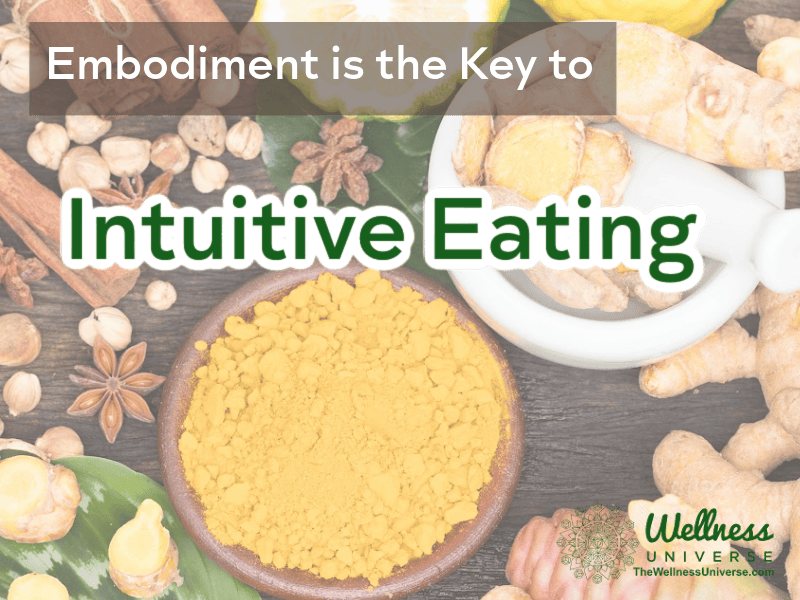In the hustle and bustle of everyday life, maintaining stable energy levels and a positive mood can often feel like a challenge. Whether it’s the afternoon slump, feelings of stress, or fluctuations in emotional well-being, many factors can influence how we feel and function throughout the day. One of the most powerful and often overlooked factors is diet.
What we eat plays a vital role in our overall health, and this extends beyond physical well-being. A balanced diet rich in essential vitamins, minerals, and macronutrients can significantly affect our mental health, helping to stabilize mood and energy levels. In this blog, we’ll explore the science behind how nutrition impacts mood and energy and how you can adopt dietary practices that support both mental and physical wellness.
1. The Link Between Diet and Mental Health
The connection between what we eat and how we feel is well-documented. Our brain, like every other organ in the body, requires specific nutrients to function properly. The foods we consume directly affect the brain’s structure and function, influencing our mood, cognition, and energy.
The Brain and Energy Regulation
The brain is an energy-intensive organ, using approximately 20% of the body’s energy despite representing only about 2% of the body’s weight. It relies heavily on a steady supply of glucose, which it gets from the carbohydrates we eat. When blood sugar levels drop, the brain can’t function optimally, leading to mood swings, irritability, fatigue, and difficulty concentrating.
The Gut-Brain Connection
Emerging research shows that the gut microbiome—the collection of bacteria living in the digestive system—also plays a crucial role in mental health. The gut and brain are closely connected through the gut-brain axis, a communication network that links emotional and cognitive centers of the brain with the gut. Certain foods, particularly those rich in probiotics, can help maintain a healthy gut microbiome, which in turn supports mental well-being (Sarkar et al., 2016).
2. Macronutrients: The Building Blocks of Energy and Mood
Macronutrients—carbohydrates, proteins, and fats—are essential for providing the body with energy and supporting mood regulation. A balance of these macronutrients is crucial for stable energy levels and mental health.
Carbohydrates: The Body’s Primary Energy Source
Carbohydrates are the body’s preferred source of energy, and they play a significant role in maintaining stable blood sugar levels. However, not all carbohydrates are created equal. Simple carbohydrates, like those found in sugary snacks and processed foods, can cause blood sugar spikes followed by crashes, leading to fatigue, mood swings, and irritability.
Complex carbohydrates, on the other hand, are digested more slowly and provide a steady source of glucose for the brain. These include whole grains, vegetables, and legumes, which help maintain stable energy levels throughout the day. Additionally, complex carbohydrates can increase the production of serotonin, a neurotransmitter that helps regulate mood and promotes feelings of well-being (Benton et al., 2007).
Key Sources of Complex Carbohydrates:
- Whole grains (brown rice, oats, quinoa)
- Vegetables (sweet potatoes, broccoli, carrots)
- Legumes (lentils, beans, chickpeas)
Proteins: Essential for Neurotransmitter Function
Proteins are made up of amino acids, which are the building blocks of neurotransmitters—chemicals in the brain that influence mood and cognition. For example, the amino acid tryptophan is essential for the production of serotonin, while tyrosine is needed to produce dopamine, which helps regulate mood and motivation.
A diet rich in high-quality protein helps ensure that the brain has the necessary building blocks to produce these important neurotransmitters. Incorporating a variety of protein sources, including plant-based proteins, can help maintain balanced mood and energy levels.
Key Sources of Protein:
- Lean meats (chicken, turkey, fish)
- Plant-based proteins (tofu, tempeh, lentils)
- Eggs and dairy products
Healthy Fats: Supporting Brain Function and Mood
Fats often get a bad rap, but healthy fats are crucial for brain function and overall health. The brain is composed of about 60% fat, and consuming the right types of fats—particularly omega-3 fatty acids—is essential for maintaining cognitive function and emotional stability.
Omega-3 fatty acids, found in fatty fish like salmon and mackerel, as well as walnuts and flaxseeds, have been shown to reduce symptoms of depression and anxiety. They also play a role in reducing inflammation, which can impact mental health (Grosso et al., 2014).
Key Sources of Healthy Fats:
- Fatty fish (salmon, mackerel, sardines)
- Avocados
- Nuts and seeds (walnuts, flaxseeds, chia seeds)
3. Vitamins and Minerals: Supporting Mental Well-Being
In addition to macronutrients, micronutrients—vitamins and minerals—are essential for stabilizing mood and energy levels. Deficiencies in certain vitamins and minerals can lead to mental health issues such as fatigue, irritability, and even depression.
B Vitamins: Vital for Brain Health
B vitamins, particularly B6, B9 (folate), and B12, are crucial for brain function and the production of neurotransmitters. They help regulate energy levels and mood by aiding in the conversion of food into energy. Low levels of B vitamins have been associated with fatigue, irritability, and depression (Smith et al., 2016).
Key Sources of B Vitamins:
- Leafy greens (spinach, kale)
- Fortified cereals
- Meat, poultry, and eggs
Vitamin D: The Sunshine Vitamin
Vitamin D plays a crucial role in regulating mood, and deficiency in this vitamin is linked to an increased risk of depression and seasonal affective disorder (SAD). Since vitamin D is primarily obtained from sunlight, it’s important to ensure you get enough, especially in the winter months or if you spend a lot of time indoors.
Key Sources of Vitamin D:
- Fatty fish (salmon, mackerel)
- Fortified dairy products
- Vitamin D supplements
Magnesium: A Natural Mood Stabilizer
Magnesium is known as nature’s relaxant and is essential for muscle function, energy production, and mood regulation. Studies have shown that magnesium deficiency is associated with increased anxiety and depression (Boyle et al., 2017). It helps regulate the body’s stress response and plays a key role in the production of neurotransmitters.
Key Sources of Magnesium:
- Dark leafy greens (spinach, Swiss chard)
- Nuts and seeds (almonds, pumpkin seeds)
- Whole grains (brown rice, quinoa)
Iron: Energy and Cognitive Function
Iron is necessary for the production of hemoglobin, which carries oxygen to the body’s tissues, including the brain. Low iron levels can lead to anemia, causing fatigue, brain fog, and mood disturbances. Ensuring adequate iron intake is crucial for maintaining energy levels and cognitive function.
Key Sources of Iron:
- Red meat and poultry
- Lentils and beans
- Fortified cereals and grains
4. The Importance of Hydration
While it’s easy to focus on food, hydration is equally important for maintaining stable energy levels and mental clarity. Even mild dehydration can lead to mood swings, fatigue, and difficulty concentrating.
Drinking plenty of water throughout the day ensures that your body and brain are functioning at their best. Aim for at least 8 glasses of water per day, and more if you’re physically active or in a hot climate.
5. Stabilizing Blood Sugar for Consistent Energy
Blood sugar fluctuations can have a significant impact on both energy levels and mood. When blood sugar levels spike and then crash, it can lead to irritability, fatigue, and feelings of anxiety. To prevent these fluctuations, it’s important to eat balanced meals that include complex carbohydrates, proteins, and healthy fats. These nutrients help slow the absorption of sugar into the bloodstream, providing a steady supply of energy.
Avoiding Sugar Highs and Lows
Foods high in refined sugar, such as candy, pastries, and sugary drinks, may give you a quick burst of energy, but they are followed by a crash that can leave you feeling tired and moody. By avoiding sugary foods and focusing on whole, nutrient-dense meals, you can help maintain consistent energy levels throughout the day.
6. Foods to Incorporate for Stable Mood and Energy
To support stable energy and a balanced mood, focus on incorporating the following foods into your diet:
- Whole grains: Quinoa, oats, and brown rice provide slow-releasing carbohydrates that maintain blood sugar levels.
- Leafy greens: Spinach and kale are rich in B vitamins, magnesium, and iron, which support energy and mood regulation.
- Fatty fish: Salmon, mackerel, and sardines are excellent sources of omega-3 fatty acids, which have anti-inflammatory properties and support mental health.
- Nuts and seeds: Almonds, walnuts, flaxseeds, and chia seeds provide healthy fats and magnesium for stress relief and brain function.
- Legumes: Beans, lentils, and chickpeas offer a plant-based source of protein and fiber to stabilize energy levels.
Conclusion: A Balanced Diet for a Balanced Mind
The food we eat plays a crucial role in how we feel, both physically and mentally. A balanced diet rich in vitamins, minerals, and macronutrients can help stabilize mood, regulate energy levels, and support mental well-being. By focusing on nutrient-dense foods and avoiding sugar highs and crashes, we can provide our bodies with the tools needed to maintain steady energy and emotional balance throughout the day.
Incorporating whole grains, lean proteins, healthy fats, and plenty of fruits and vegetables into your daily diet not only supports your physical health but also promotes a healthier, more resilient mind.
Works Cited
Benton, D., & Donohoe, R. T. (2007). The effects of nutrients on mood. Public Health Nutrition, 11(3), 293–300.
Boyle, N. B., Lawton, C., & Dye, L. (2017). The effects of magnesium supplementation on subjective anxiety and stress—a systematic review. Nutrients, 9(5), 429.
Grosso, G., Pajak, A., Marventano, S., Castellano, S., Galvano, F., & Bucolo, C. (2014). Role of omega-3 fatty acids in the treatment of depressive disorders: A comprehensive meta-analysis of randomized clinical trials. PLoS One, 9(5), e96905.
Now Available!
The Wellness Universe Guide to Complete Self-Care, 25 Tools for Life
Twenty-five experts from The Wellness Universe share heartfelt stories and transformative self-care tools, offering guidance for personal growth, healing, and a balanced, fulfilling life. This book aligns with The Wellness Universe’s mission to inspire and contribute to a better world, empowering readers to embrace their extraordinary potential.
Grab Your Copy Now
The Wellness Universe is honored to support our charity of choice, the Karina LeBlanc Foundation. Empowering young women to bring to light their inner greatness.
25 Tools for Life: A Magical Journey Workshop Series
Learn from 25 experts as they guide you through transformative workshops based on their bestselling book. Gain tools for healing, balance, and personal growth. Can’t join live? Lifetime access to all recordings is included.
Register now to join the journey! https://bit.ly/AMJWorkshops
WEDNESDAY 2/12 2pm ET/11am PT
Ignite Your Wellness Business with The Wellness Universe
If you seek a platform, community, support, and opportunities to speak, get published, serve audiences, and grow your business as a teacher, trainer, practitioner, coach, consultant, or healer in the wellness, well-being, and transformational space for individuals or organizations, we invite you to join to learn more about becoming a member.
Register and Join Live
The Wellness Universe Wellnesspalooza 2025
Get the bundle and save! Lifetime Access to the recordings!
Over 40 sessions for mind, body, spirit, and financial well-being.
Register Now and Watch the Recordings: https://bit.ly/Wellnesspalooza2025
The Wellness Universe is your resource for health, wellness, well-being, and transformation. We serve and support professionals who make the world a better place and individuals and groups who seek their best life.
A woman owned company; having the vision in 2013, Anna Pereira launched the first directory in 2015 bringing together a community of members making the world a better place to be found by those seeking their best life. The Wellness Universe has grown since then to be a one-stop shop for total wellness support! We are a vetted community, online directory, book publisher, resource center, event producer, content platform, and so much more, supporting whole-health and well-being on a global scale.
The Wellness Universe is a home that connects industry professionals in the health, wellness, and well-being fields to seekers of total well-being. WU provides our WU World-Changer members with peer support, Wellness Universe produced events (live and online), projects, visibility, business mentoring, and community. Through The Wellness Universe our WU World-Changer members serve WU Friends, seekers of health, wellness and transformation, with coaching, workshops, content and more.
The Wellness Universe provides individuals and groups seeking their best lives with access to our members, wellness content, educational resources, and guidance in all areas of wellness to transform visions of how they want to live life into the life they experience.
Through the directory, WU Featured Blog, SoulTreat wellness retreat, Self-Care Books, group well-being programs, and online learning center, The Lounge, The Wellness Universe provides many avenues to support whole health, mind, body, spirit and planet.
Join us today! Wellness Professional or Seeker of Your Best Life








If you are feeling sluggish, stressed, or emotionally off balance, this blog can help. It explores the powerful connection between diet and mental well-being, showing how balanced meals rich in essential nutrients can stabilize mood and energy levels. From the gut-brain axis to the role of macronutrients, vitamins, and hydration, you’ll discover practical tips to nourish your body and mind for optimal wellness.